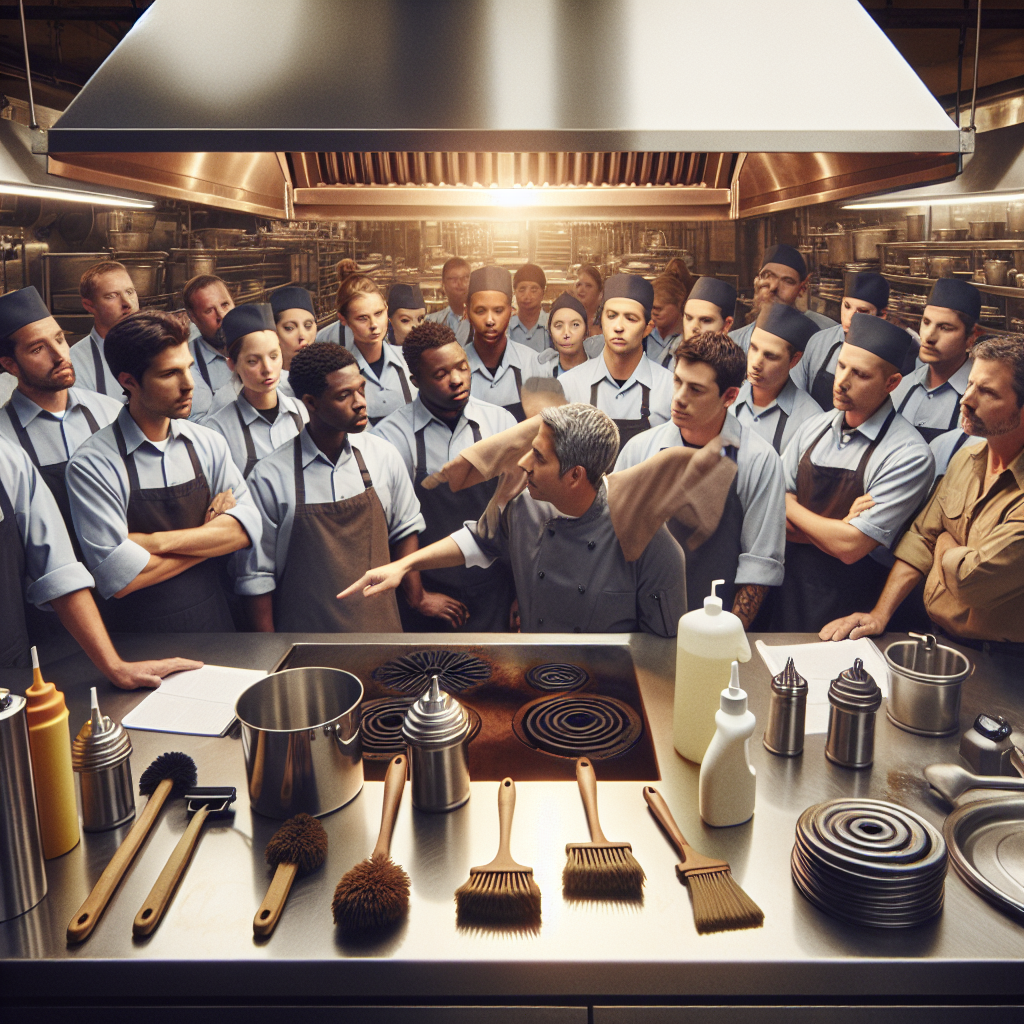In any bustling restaurant or commercial kitchen in Nashville, maintaining clean and efficient kitchen hoods isn’t just about adhering to local regulations—it’s a critical component in promoting a safe and productive work environment. This is why training your team on the essentials of hood cleaning is so indispensable. Proper restaurant hood cleaning ensures not only the safety of your staff but also the longevity of your kitchen equipment.
The Importance of Proper Hood Cleaning
Before diving into the specifics of training your team, it’s crucial to understand why commercial kitchen hood cleaning should never be overlooked. Kitchen hoods are designed to capture and filter out grease, smoke, and other contaminants that arise during the cooking process. However, over time, these substances can accumulate inside the hood, leading to a variety of hazards.
- Fire Hazard: Grease build-up is highly flammable and can ignite with just a spark, leading to devastating kitchen fires.
- Health Risks: A dirty hood can become a breeding ground for bacteria and other pathogens.
- Energy Efficiency: Blocked exhaust hoods can cause your kitchen’s ventilation system to work harder, consuming more energy and inflating your utility bills.
- Regulatory Compliance: Most health and safety regulations mandate regular cleaning of kitchen hoods. Failure to comply can result in hefty fines or even closures.
Step-by-Step Hood Cleaning Procedures
Training your team on effective exhaust hood cleaning involves teaching them the following step-by-step procedures:
- Preparation: Always start by turning off all appliances and allowing them to cool. Wear appropriate protective gear including gloves and safety goggles.
- Remove and Soak Filters: Take out the grease filters and soak them in hot, soapy water. For stubborn grease, a commercial degreaser can be more effective.
- Scrape Off Grease: Use a scraper or wire brush to remove any heavy deposits of grease from the hood’s interior surfaces.
- Apply Cleaning Solution: Spray a professional-grade kitchen degreaser on the interior surfaces of the hood. Allow it to sit for the recommended time on the product label.
- Scrub and Wipe: Use a scraper, scrubber, or sponge to clean the interior surfaces thoroughly. Wipe down with a clean, damp cloth.
- Clean the Fans and Ducts: If applicable, clean the exhaust fans and ducts. This can require specialized equipment and may need to be done by professionals.
- Reassemble and Test: Once all parts are thoroughly cleaned, dry, and grease-free, reassemble the hood and filters. Finally, test the exhaust system to ensure it’s functioning correctly.
Ongoing Training and Recertification
Once your team is initially trained, it’s vital to keep the knowledge fresh through ongoing training sessions. This ensures everyone is up-to-date on the latest commercial kitchen hood cleaning techniques and safety regulations.
- Quarterly Reviews: Conduct quarterly review sessions to update the team on new regulations, products, or methods.
- Mock Drills: Periodic mock cleaning drills can help teams stay polished and ready for periodic inspections.
- Certifications: Some cleaning tasks may require specific certifications. Ensure your team’s qualifications are current.
Common Mistakes to Avoid
Even with proper training, some common mistakes can still occur. Here are some pitfalls to avoid:
- Skipping Regular Cleanings: Irregular cleaning schedules can lead to dangerous build-ups and costly repairs.
- Using the Wrong Cleaning Agents: Always use cleaning solutions specifically designed for kitchen hoods to avoid damaging the equipment.
- Ineffective Scrubbing: Proper scrubbing techniques are essential. Inadequate scrubbing can leave behind grease and other contaminants.
- Overlooking Ventilation Checks: Regularly check the entire ventilation system, not just the hood, to ensure systemwide efficiency and safety.
Professional Assistance
While training your team is crucial, sometimes the best way to ensure your kitchen hood is impeccably clean is to hire professionals. Companies like Nashville Hood Cleaning Pros offer specialized services to ensure your hoods are in top condition. These experts use advanced techniques and equipment to deliver a level of cleanliness that’s tough to achieve in-house.
Conclusion
Proper hood cleaning is not just a task but a cornerstone of kitchen safety and efficiency. By training your team on essential hood cleaning knowledge, you can prevent fires, meet health regulations, and keep your kitchen running smoothly. However, for the best results, partnering with experts like Nashville Hood Cleaning Pros can provide you with professional-grade cleaning that outshines any DIY effort. Investing in this essential training will reward you with a safer, more efficient, and more compliant commercial kitchen.


